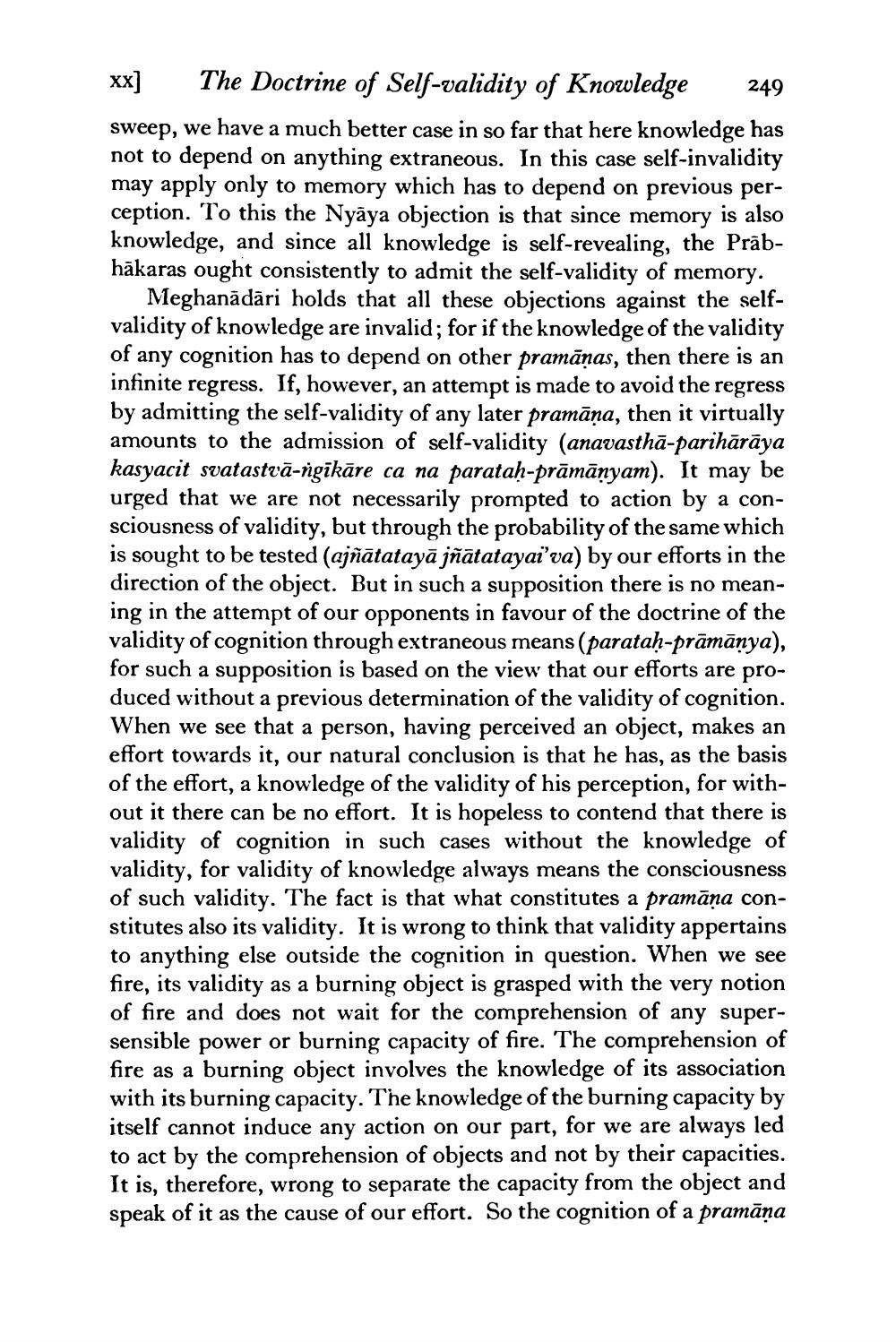________________
xx] The Doctrine of Self-validity of Knowledge 249 sweep, we have a much better case in so far that here knowledge has not to depend on anything extraneous. In this case self-invalidity may apply only to memory which has to depend on previous perception. To this the Nyāya objection is that since memory is also knowledge, and since all knowledge is self-revealing, the Prābhākaras ought consistently to admit the self-validity of memory.
Meghanādāri holds that all these objections against the selfvalidity of knowledge are invalid; for if the knowledge of the validity of any cognition has to depend on other pramāņas, then there is an infinite regress. If, however, an attempt is made to avoid the regress by admitting the self-validity of any later pramāņa, then it virtually amounts to the admission of self-validity (anavasthā-parihārāya kasyacit svatastvā-ngīkāre ca na paratah-prāmānyam). It may be urged that we are not necessarily prompted to action by a consciousness of validity, but through the probability of the same which is sought to be tested (ajñātatayā jñātatayai'va) by our efforts in the direction of the object. But in such a supposition there is no meaning in the attempt of our opponents in favour of the doctrine of the validity of cognition through extraneous means(paratah-prāmānya), for such a supposition is based on the view that our efforts are produced without a previous determination of the validity of cognition. When we see that a person, having perceived an object, makes an effort towards it, our natural conclusion is that he has, as the basis of the effort, a knowledge of the validity of his perception, for without it there can be no effort. It is hopeless to contend that there is validity of cognition in such cases without the knowledge of validity, for validity of knowledge always means the consciousness of such validity. The fact is that what constitutes a pramāna constitutes also its validity. It is wrong to think that validity appertains to anything else outside the cognition in question. When we see fire, its validity as a burning object is grasped with the very notion of fire and does not wait for the comprehension of any supersensible power or burning capacity of fire. The comprehension of fire as a burning object involves the knowledge of its association with its burning capacity. The knowledge of the burning capacity by itself cannot induce any action on our part, for we are always led to act by the comprehension of objects and not by their capacities. It is, therefore, wrong to separate the capacity from the object and speak of it as the cause of our effort. So the cognition of a pramāņa




